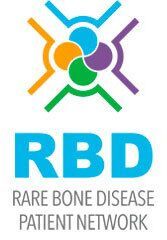
Being a caregiver is more than just a role—it’s a commitment of the heart. Whether you're helping a child, a spouse, a parent, or a friend, your days are often filled with compassion, responsibility, and selflessness. But in the midst of giving so much to someone else, it’s easy to forget to care for one very important person: yourself.
While “caregiver” is technically defined as someone who assists a person who can’t fully care for themselves due to age, illness, or disability, the lived experience often goes far beyond that definition. The emotional and physical energy required can be overwhelming, and if not addressed, the toll it takes on your well-being can be serious.
The Quiet Weight of Caregiving
Burnout isn’t just about feeling tired—it’s a deep, ongoing exhaustion that can impact every part of your life. When you’re constantly focused on someone else’s needs, it’s easy to overlook your own.
Caregiving can lead to chronic stress that builds up over time. Without adequate support, this stress can affect your physical health, emotional balance, and mental well-being. Many caregivers report feeling anxious, overwhelmed, or emotionally drained. These feelings are normal—but they’re also signals that it’s time to pause and care for yourself, too.
It’s important to recognize that you’re carrying a heavy emotional load. Whether it’s managing complex medical tasks, navigating uncertainty, or simply being “on” all the time, caregiving demands a great deal of strength. Acknowledging the weight of that responsibility is the first step toward finding balance.
Recognizing the Warning Signs
So how do you know if the stress is becoming too much? There are often early warning signs that signal it's time to step back and check in with yourself:
- Emotional changes: Feeling persistently sad, irritable, overwhelmed, or hopeless
- Physical effects: Chronic fatigue, trouble sleeping, changes in appetite, or frequent illness
- Behavioral shifts: Pulling away from friends and hobbies, missing appointments, or leaning more heavily on alcohol or medication
Over time, these symptoms can grow into something much more serious. That’s why early recognition—and action—is key.
Taking Care of the Caregiver
You can't pour from an empty cup. To continue being a source of strength for your loved one, you need to invest in your own well-being. Here are a few steps that can make a real difference:
- Find Your Community: You’re not alone. Support groups and caregiver organizations offer a space to connect, share, and learn from others facing similar challenges. Whether online or in person, these communities can be lifelines.
- Make Space for You: Even small moments of self-care matter. Go for a walk, enjoy a favorite hobby, or simply rest. Taking care of your body and mind isn’t selfish—it’s necessary.
- Explore Respite Options: Temporary help from respite care providers can offer you time to recharge. It’s okay to take a break, and it doesn’t make you any less dedicated.
- Be Realistic: You don’t have to do it all, and you certainly don’t have to do it perfectly. Let go of guilt, ask for help, and accept that your best is enough.
- Talk to a Professional: Therapists or counselors trained in caregiver issues can help you navigate the emotional rollercoaster and build tools for resilience.
You’re Doing Important Work—Take Care of Yourself, Too
Caregivers are the unsung heroes in so many lives. But even heroes need support. By recognizing the early signs of stress, reaching out for help, and taking intentional steps to care for yourself, you can continue your caregiving journey with greater strength and stability.
And always remember: it's okay to rest. It's okay to ask for help. You matter, too.
Resources
Mental Health America provides an online self-assessment questionnaire at screening.mhanational.org










